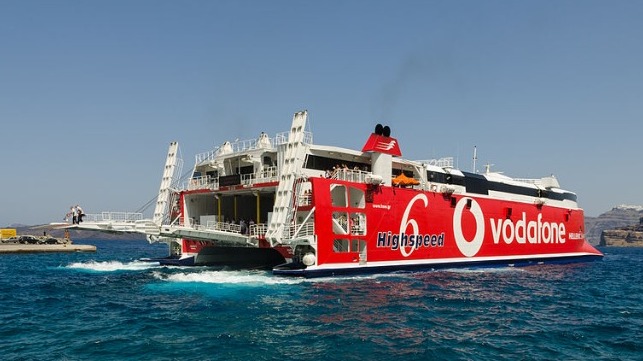The Hellenic Coast Guard will be assuming responsibility for checking passenger compliance with Greece’s new COVID-19 rules for inter-island ferry travel, shipping minister Yiannis Plakiotakis announced Wednesday.
On July 5, the Greek government imposed new requirements for COVID-19 health documentation for public travel and places of entertainment. To protect Greece’s island communities, the rules require island ferry passengers to show proof of some level of immunity to COVID-19, and the directive allows for a range of options. Passengers may bring a certificate showing that they have received full vaccination at least two weeks prior; alternatively, they can bring an official confirmation showing that they have previously been infected with COVID at any point between 30 and 180 days in the past; or they can show proof of a recent negative test, including a PCR test or a rapid test. Initially, ferry crewmembers were required to cross-check passenger identity documents against their health certificates, and Hellenic Coast Guard servicemembers will now step into this role.
“I ask for the cooperation of all travelling by boat. I ask them to carry all the necessary documents with them, to be meticulous in observing the measures, to follow the instructions of the men and women of the Coast Guard,” Plakiotakis said. “Also, for their greater convenience, [they should] be at the port at least 1.5 hours ahead of the departure time of the ship. With vaccination, following the measures and responsibility, we can enjoy this year’s summer in good health.”
The new regulations and enforcement measures come as summer holiday-goers head out to Greece’s popular island destinations for the first time since lockdown began in early 2020. The Greek government has opened its doors to international travelers from outside of the Schengen Zone, hoping that it will see the return of its valuable tourism industry this year. It no longer requires visitors from certain overseas nations (including the U.S.) to quarantine on arrival, and it is structuring its COVID-19 regulations to support a safe return for leisure travelers.
Source: The Maritime Executive




